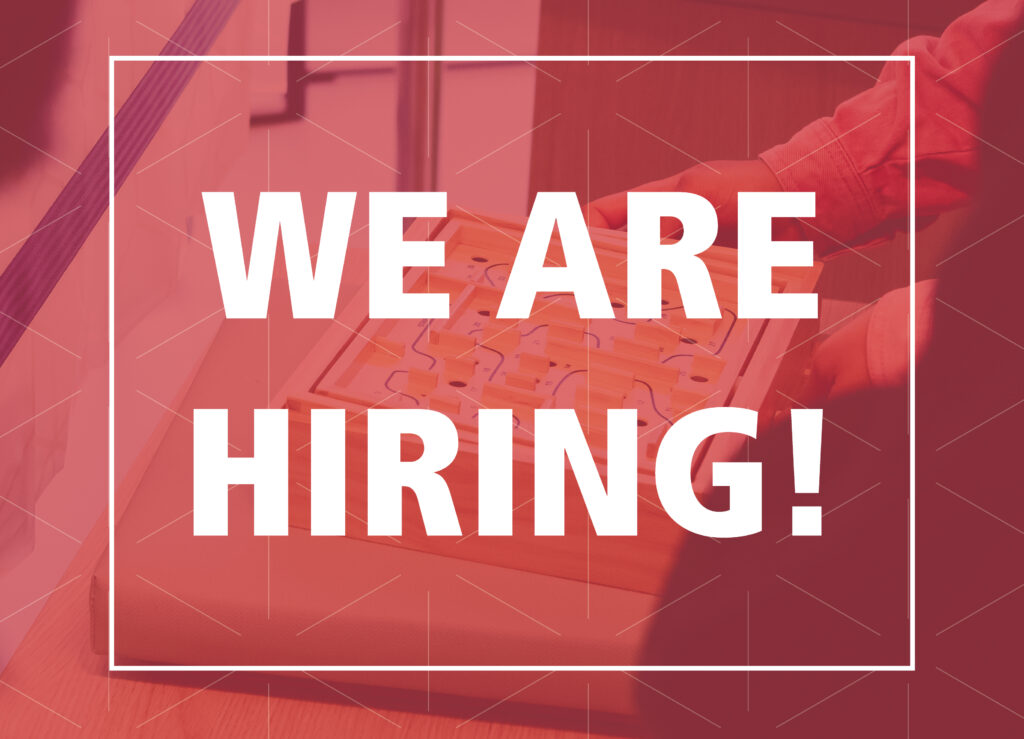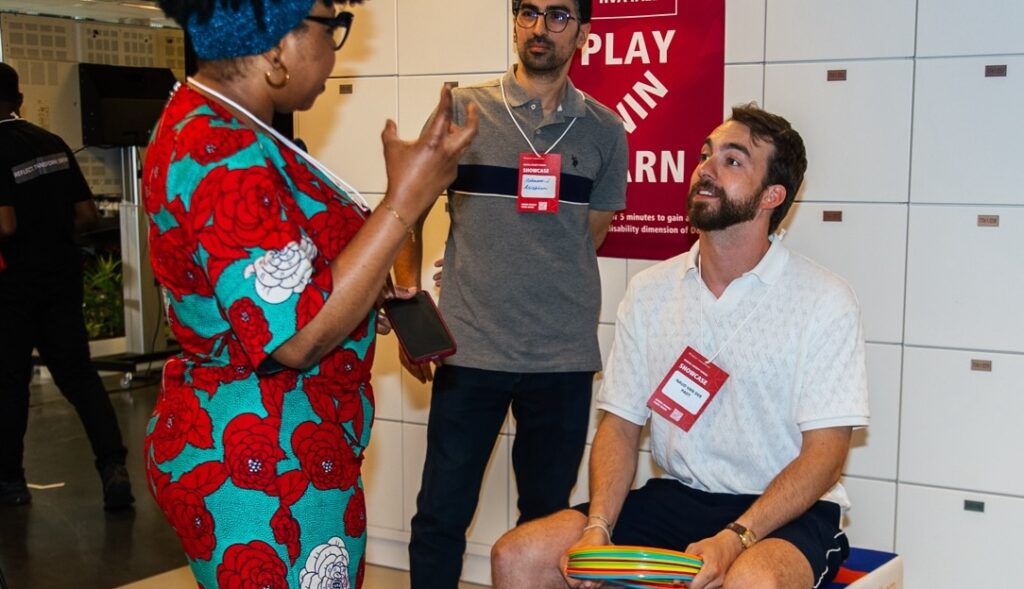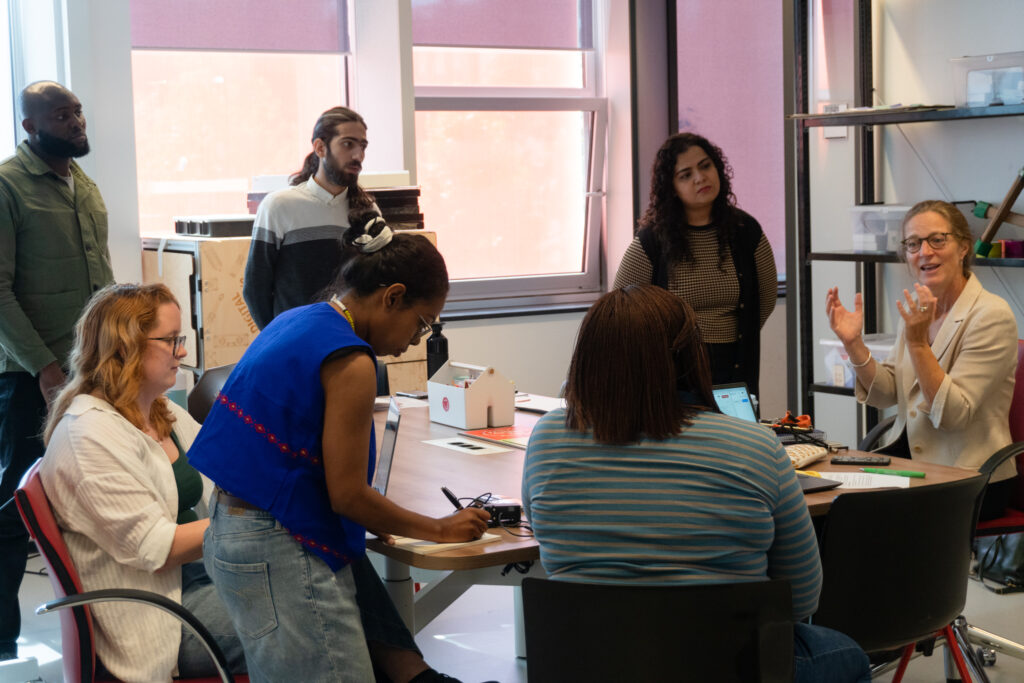Programme
Design Across Cultures
The Design Across Cultures (DxC) program is the Digital Society School’s (DSS) global initiative for collaboration between cities and multidisciplinary multicultural design teams to tackle similar local challenges all over the world, using the force of cultural differences and similarities as a design strategy. In the program, we aim to make an important contribution to solving today’s societal challenges through creating an innovation chain for the United Nations Sustainable Development Goals (SDGs) globally.
Main goals of the DxC are:
- Developing programs that ignite collaboration between cities and multidisciplinary design teams to tackle similar local challenges all over the world.
- Create an inclusive platform for sharing and building upon each other’s work and fight against design waste.
- Develop a combination of online and offline learning based on expertise and competencies that are needed to constructively engage in collaboration at an international level.
- Build expertise on how we are working together in co-design processes for social good through design-anthropological research, and apply this expertise to the development of educational and training activities and learning recourses.
How do we work in DxC?
DXC offers three collaborative frameworks for designing social innovation cross-culturally. Each of these frameworks encourages collaboration across cities and cultures, and provides students and/or professionals with an opportunity to work closely with different global stakeholders and together will come up with tools, prototypes and solutions for one of the UN’s Sustainable Development Goals.
The DxC collaboration frameworks are:
Mirrored. Multidisciplinary teams simultaneously work on shared societal challenges in their own cultural context, constantly exchanging research, ideas and insights which influences local outcomes with a global outlook (community of practice model).
Characteristics:
- Similar assignments, different (cultural) contexts
- Continuously sharing and communicating as the process unfolds
- Revealing the blind spots of local designs
- Reframing of local challenges and solutions
Relay. Multidisciplinary teams handover insights and solutions to teams working in another cultural context, which build upon and refine these through looking at the challenge from their own cultural context and outlook.
Characteristics:
- One assignment, different contexts
- Handover insights and results from one context to another
- Sequence of projects
- Knowledge translation and learning across sites and contexts
Circular. Multicultural teams work on different aspects and dimensions of the same problem in different places, complementing their research, ideas and insights to reach new and innovative solutions at the global level.
Characteristics:
- One interconnected assignment, different (cultural) contexts
- Working on the same global problem across sites and teams
- Open and experimental
- New and innovative chain solutions
Join us is one of the DxC programs:
We offer different programs in which you can join Design Across Cultures:
DxC Track program mirrors multidisciplinary teams on locations all around the world via our strong international network. Within the DxC track project, you join one of the running DSS Track programs, while at the same time sharing and building on the insights of a team working on a similar challenge on other side of the globe.
DxC digital camps offer more flexible and intensive forms of design, technology and social innovation in an international and intercultural setting. In the forms of summer schools, hackathons, design jams you will work around the 2030 goals with talented people from other countries and cultures for flexible periods of times.
DxC Professional program provides a training ground for working professionals to advance their skill-sets on around social innovation, design and digital skills in a cross-cultural and international setting.
Background
The big challenges of today, such as climate change, energy transition, refugee problems, and circular economy, cut across national and cultural borders. The challenges before us are so complex that no single discipline, mindset, or expertise will be able to solve them. To address social challenges globally, we need to collaborate and learn from local ideas and solutions that are being developed across the globe.
Solutions to today’s challenges, however, are often designed to be culturally neutral. In the design process, differences are generally smoothed over, in the preference for order, oneness, and neatness. In our globalized and interconnected world, such a view is no longer maintainable. Problems only dissolve when we work together, find ways to learn from each other’s insights, perspectives and positions, and create synergy between people who think and act differently.
DxC therefore starts from the position that difference is not a problem to be solved, but rather a source of richness and inspiration, if engaged with in a constructive and meaningful manner. We approach cultural differences (and similarities) as a source of creativity and inspiration to reach new innovative and inclusive solutions.
In the past we have drawn on the power of cultural difference to spark collaboration between a great number of global partners. We finished DxC projects in collaboration with Bell Labs, Innovation Studio Fukuoka, Schiphol, Elisava Barcelona and Kyushu University. In all of these projects, citizen empowerment has been a main focus, especially in relation to the local context of the cities (Amsterdam, Bangalore, Barcelona and Fukuoka).
More recently, we organized a VR Summer School on the digital ethics in four locations (Amsterdam, New York, Kyoto and Seoul), together with New York City Medialab, Kyoto Sangyo University and Hanyang University. You can read this Medium post for more background on the Summer school and our cross-cultural ways of working: https://medium.com/digitalsocietyschool/virtual-reality-across-cultures-can-virtual-reality-help-to-think-about-our-digital-future-f9d51ab3c2b8 ]
Interested?
Are you interested in joining programs, becoming part of the global network, or would like to know more about what we do, please contact DxC coordinator: n.w.verouden@hva.nl


